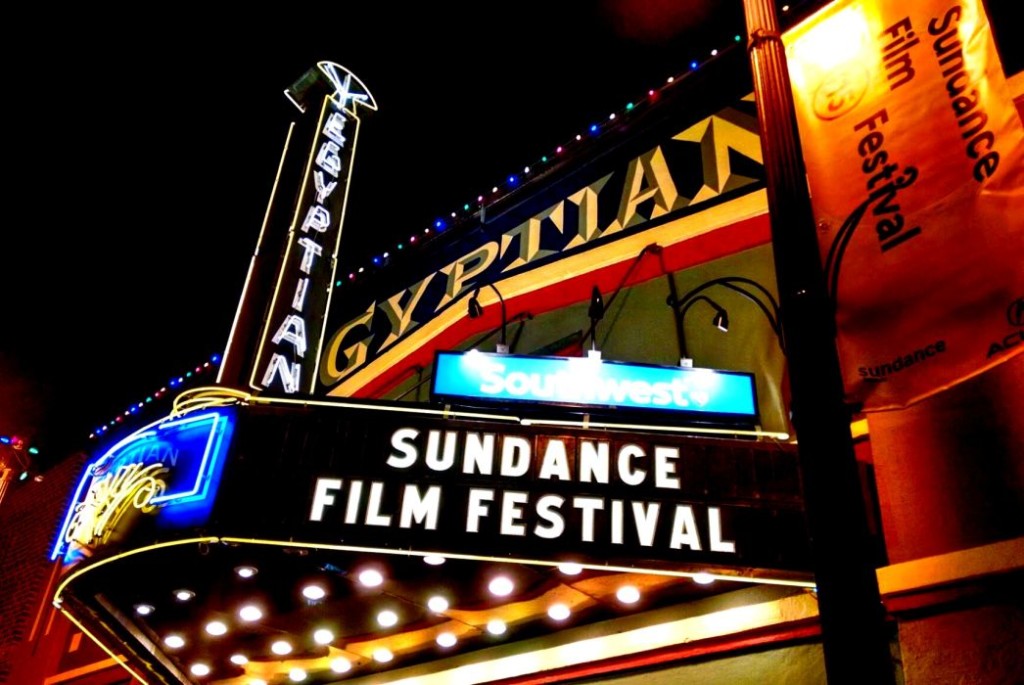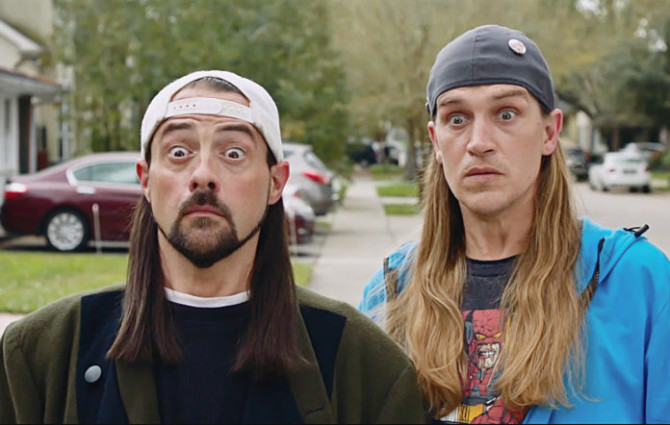I have a question for you.
Does Sundance matter anymore?
It used to be the number one hotspot to find the next breakout hit. Little Miss Sunshine, Reservoir Dogs, Memento, The Usual Suspects.
But what’s come out of Sundance recently?
Late Night. Blinded by the Light. The Report. And let’s not forget that 2017 Sundance darling that lit the box office on fire – Beach Rats.
Okay, to be fair, there are still some success stories. Eighth Grade. The Big Sick. Call Me By Your Name. But Sundance movies used to make money! Little Miss Sunshine made 100 million bucks at the box office. Where are the money-makers these days? It feels like Sundance has become more of a place to feed streamer content.
Back in the day, film festivals were the only way to get non-traditional movies a) seen and b) distributed. But the internet’s been steadily eating away at that model for years and I think we’ve finally reached a point where festivals no longer make sense. The one argument they still had over the internet was, “Do you want your movie to be seen on a big screen or on someone’s phone?” But outside of Christopher Nolan, people aren’t picky about how they watch their media anymore.
I suppose it’s still a place to build buzz for projects. You have a movie that does well at Sundance and that translates into a studio getting behind you and putting together a legit release with an actual marketing budget behind it. But how did that go for a movie like “The Farewell?” Yes, it was a critical darling. But nobody saw it. Why? Because there were a bunch of people looking really sad on a poster for one (nothing screams “I HAVE TO SEE THAT!” better than a bunch of depressed faces). But also, Sundance no longer carries the same level of cache. There aren’t enough successful movies coming out of there to generate interest when they say they’ve found a new one. And The Farewell continues that streak.
The point is, I’m not sure film festivals work as a model anymore. They were perfect for 1997 when it was the only way to break out from obscurity. But nowadays, it seems like the better option is to make a great short film, put it on the internet, get a lot of views, and find someone to bankroll the feature (a la Lights Out). I also believe it’s a matter of 3-4 years before a Netflix or Amazon creates a direct distribution model for films the same way they have for self-publishing novels. “But how will anyone know about them, Carson??” The best movies will rise to the top via rankings and word of mouth. If I had the resources, I would put that system together in a second.
While I was ruminating on all this, what should appear on my iTunes main page but the latest “Jay and Silent Bob” movie. Before I knew what was happening, Carson circa 20 years ago rented the flick. Great, now I had to watch it.
I decided to enter this viewing experience with a simple directive: LAUGH ONE TIME. That’s it. That’s all I was asking of this 90 minute movie – to make me laugh one single time. Did it succeed? I’ll share that answer with you in a second but first let’s talk about Smith.
Kevin Smith is the single luckiest person who’s ever made it in Hollywood. And I say that sans hyperbole. I truly believe he’s at the top of the list.
This is a man who maxed out his credit cards to make a movie, in black and white mind you, that he then used the last of his money for to submit to the Independent Feature Film Marketplace, got the world’s worst screening time (11 am) and nobody showed up except for one guy named Bob Hawk who had a little pull in the indie business. Hawk literally told Smith that the only reason he showed up was because he saw the publicity card for the movie and it looked like the saddest thing he’d ever seen. He showed up because he felt bad for the film. It just so happened that his sense of humor lined up with Smith’s. He began telling everyone it was great, and this was back when you could tell people through backchannels that something was great, build a buzz, and the movie would succeed regardless of whether it was good or not. It was the buzz that propelled it, not the quality of the film.
It is safe to say that had Hawk not gone to that Clerks screening, nobody would’ve ever heard of Smith.
Mind you, I’m not saying Clerks wasn’t good. There are obviously people who love it. But is it as good as it was made out to be? If you look at the rest of Smith’s contribution to film, does it support the belief back then that he was a talented filmmaker?
I throw in Jay and Silent Bob Reboot and, like I said, I only want to laugh once. The plot isn’t as bad as I expected. Jay and Silent Bob get arrested for growing weed and during their court case, accidentally sign a document giving up the rights to their names, which allows Kevin Smith, as in the actual director, to use their likeness to make a Jay and Silent Bob reboot movie so they need to get to California to stop him. Actually, what am I talking about? That sounds awful. Am I deranged?
Which would explain why I was not able to achieve my goal. Jay and Silent Bob Reboot does not have a single solitary laugh in it. Not one.
I’m sitting there thinking to myself, how can this be? Just the sheer number of jokes implies that one of them has to hit. Even a stopped clock tells the right time twice a day. But nope. There isn’t even a funny dialogue line. And that’s arguably Smith’s only strength, is his dialogue.
I could’ve disposed of the film’s memory right then and there but my screenwriting analysis side wouldn’t let me. I had to understand why the movie was so unfunny. Comedy is the most subjective genre there is. But this was objectively unfunny. Why was that?
The first thing that popped out at me were the letters “S” and “U.” Longtime Scriptshadow readers know what I’m talking about. G = goal. S = stakes. U = urgency. Jay and Silent Bob had the “G.” The goal is to get to Hollywood to stop the movie from happening.
But what are the stakes? What happens if they don’t stop it? The movie gets made and… then what? They don’t have the rights to their own names? Does it really matter? If it does, they don’t do a good job conveying that to us. The value of high stakes is that they make your characters’ actions feel important. This trickles down to every single scene because if our characters encounter an obstacle, we’re a lot more invested in them overcoming that obstacle if the ultimate goal feels important.
Stakes work hand in hand with URGENCY. If you can create an important situation and you can then give your heroes less time than they need to accomplish it, your script is going to feel tense, and that’s something Jay and Silent Bob Reboot lacked.
Jay and Silent Bob has what I call “FALSE URGENCY.” It’s urgency that’s on the page (“We only have 3 days to get to Hollywood!”) but it never truly feels like they’re in a hurry. This is something I try to remind screenwriters. You can’t pay lip service to the formula. It has to be authentic. In The Hangover, you really felt the characters’ need to find the groom by the end of the day so they could get him to his wedding on time.
Or look at one of the biggest comedies from last year – Good Boys – to see how to get the formula right. In that film, the boys lose their dad’s really expensive ‘they’ll be grounded for life’ drone to some older neighborhood girls and they have to get it back by the end of the day. Goal = get the drone back, Stakes = grounded for life (high stakes for 6th graders), and Urgency = Dad gets home at the end of the day.
When you don’t have GSU in a comedy, you’re hanging your characters out to dry in every single scene. What I mean by that is, “being funny” is the only thing driving the scene, which is the fastest way to write an unfunny scene.
For example, there’s a scene where the characters stop for food at a fast food joint. There are no stakes attached to this scene. No urgency. The only goal is to order food. Smith does everything in his power to write funny dialogue. But funny dialogue without any purpose behind it is the equivalent of pointing at someone and saying, “Be funny right now.” Who’s ever been able to be funny in that situation?
And that’s almost every single scene in this movie. But here’s the curious part of all this. That was the same approach Smith took with Clerks. So why did that movie work and this one didn’t? How come rule-breaking dooms this film but doesn’t doom that one?
Well, it IS actually possible to write funny stuff without a plot or GSU. It’s just a million times harder. It’s like anything in writing. Sure, you can write a good movie with a passive hero. It’s just a million times harder than if you write a movie with an active hero. So why would you stack the odds against yourself?
I have a theory on why Clerks worked while this didn’t. Energy. The energy a screenwriter has before he’s made it is his superpower. You’re hungrier. You’re angrier. You’re more willing to rewrite it until it’s perfect. All of that comes through in that movie. Regardless of how you feel about Clerks, there’s no denying that it’s packed with a manic energy that picks up the slack in places where the plot and characters dip.
Conversely, Jay and Silent Bob feels like a tired film. Everyone looks tired. And when you have weaknesses in your writing as big as Smith does, you can’t afford for other parts of your production to be lacking.
Share your thoughts about Sundance, Kevin Smith, and this weekend’s box office in the comments section. 1917 with another strong hold. Seems like a shoe-in for Best Picture at this point. And I still haven’t seen it! Maybe this week. :)



